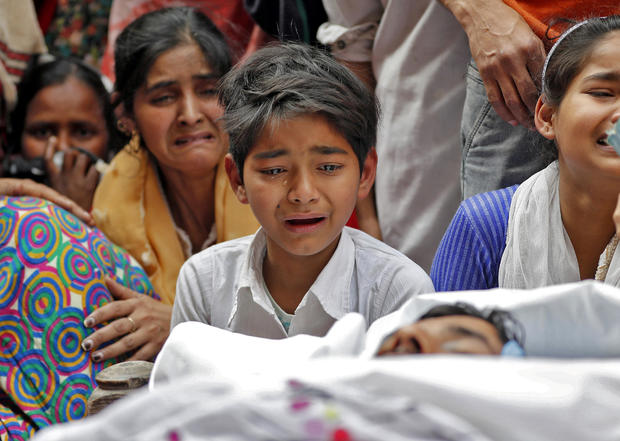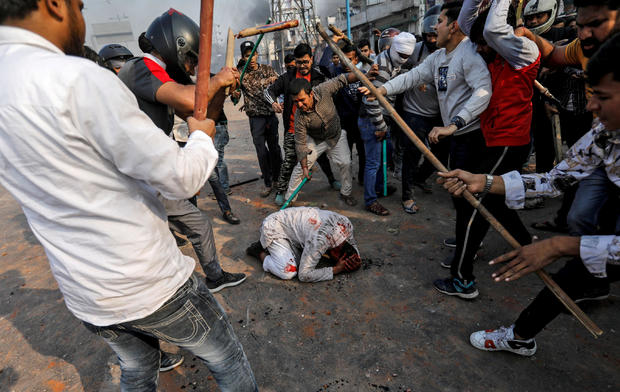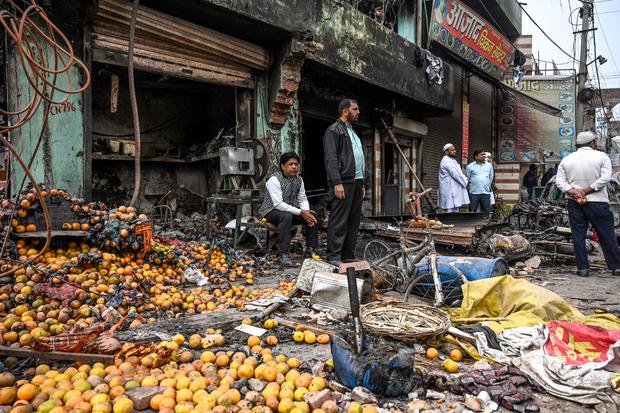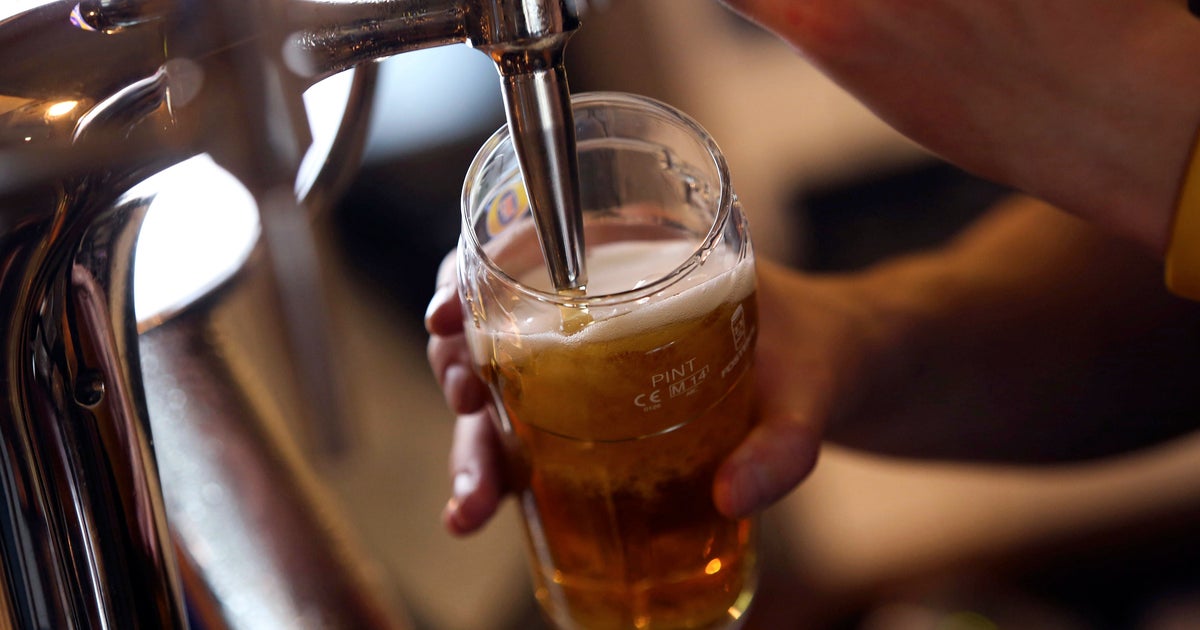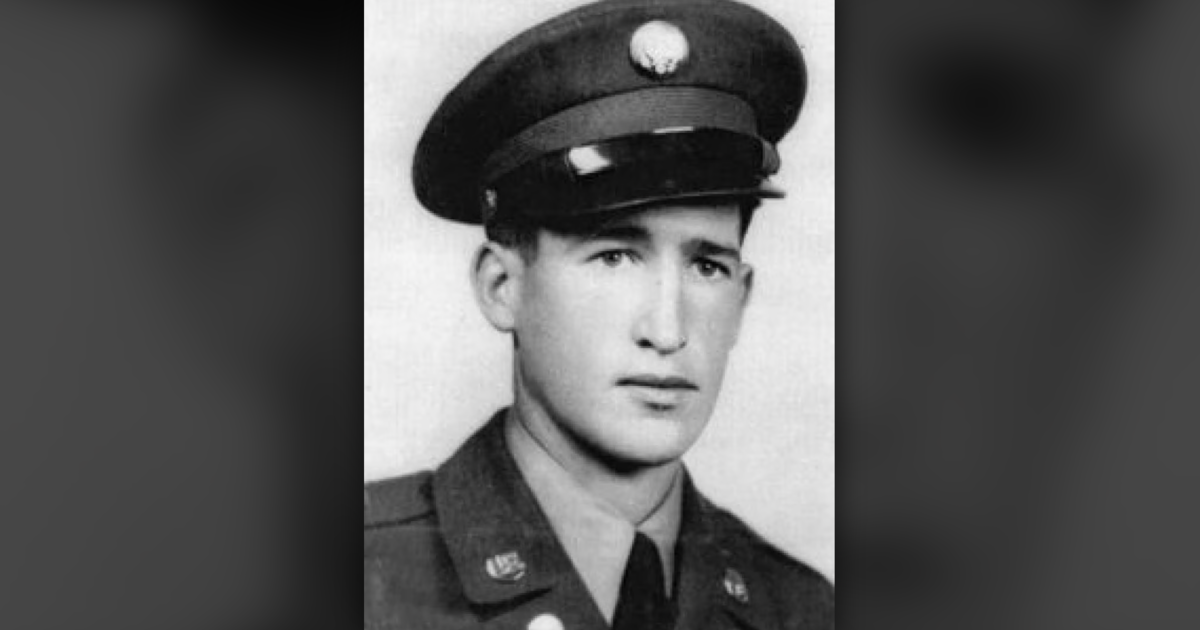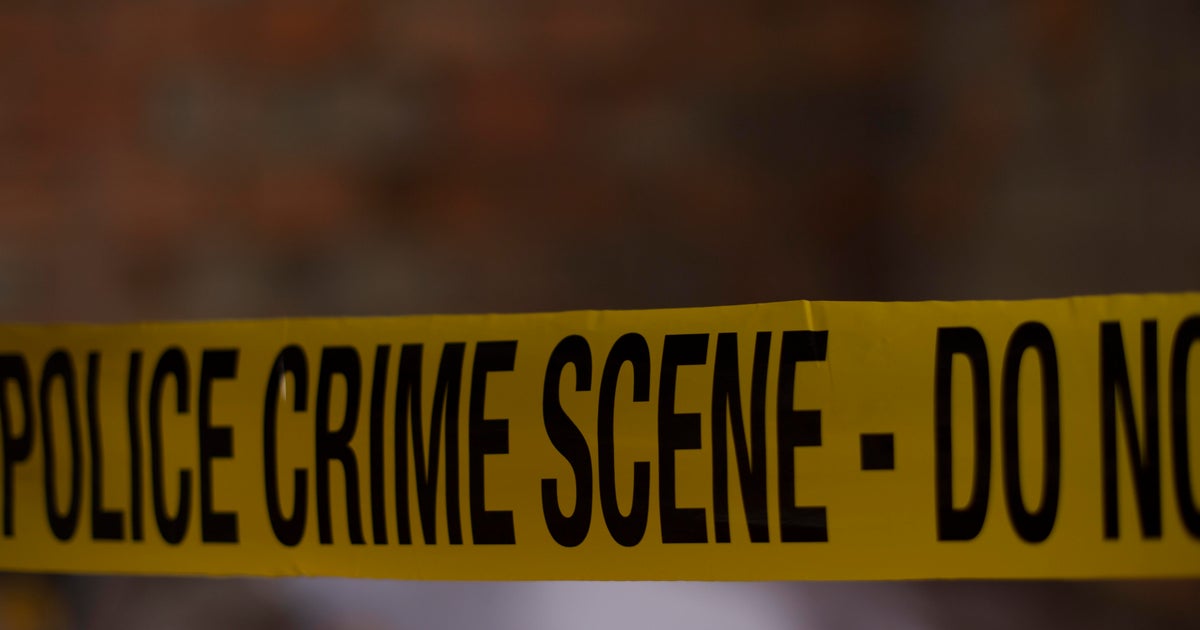New Delhi riots leave 38 dead as India balks at U.S. reaction to the religious violence
Delhi — The death toll from four days of sectarian violence in India's capital has risen to 38, making it the worst religious rioting Delhi has seen in more than three decades. Over 200 people have been injured, dozens of them shot, as mostly-Hindu supporters of a controversial new citizenship law seen as discriminatory against the country's minority Muslim population clash with opponents.
Despite assurances from government and police officials Wednesday that the situation was under control, new clashes were reported early Thursday morning, and the death toll continued to rise sharply. Residents in the hardest-hit neighborhoods have told CBS News they're afraid to leave their homes.
The violence prompted the U.S. Embassy in India to issue an advisory for American citizens in the capital city, urging them to "exercise caution," "keep a low profile" and "avoid all areas with demonstrations."
In Washington, the U.S. government's Commission on International Religious Freedom (USCIRF) condemned the "brutal and unchecked violence" in Delhi and urged the Indian government to "take serious efforts to protect Muslims and others targeted by mob violence."
India's External Affairs Ministry dismissed the commission's comments as "factually inaccurate and misleading," and said they appeared to be "aimed at politicizing the issue."
New law behind the clashes
The controversial law at the heart of the violence is called the Citizenship Amendment Act. Brought in by Indian Prime Minister Narendra Modi's government, the law makes it easier for people facing religious persecution in three neighboring countries — Pakistan, Afghanistan, and Bangladesh — to get Indian citizenship. But the law specifically excludes Muslims.
There were widespread, deadly protests as soon as the law was passed in December, and they have continued to this day.
Opponents of law in secular India, including both Hindus and Muslims, argue that it is unconstitutional for singling out a religious group. They say it is part of a larger plan by Modi's right-wing, Hindu nationalist government to marginalise the country's 200 million Muslims.
"We don't sleep at night"
The latest clashes kicked off in Delhi on Sunday, the eve of President Donald Trump's first state visit to India.
Houses, shops, cars, and mosques were gutted as mobs armed with sticks, stones, and Molotov cocktails ransacked at least 10 neighborhoods in northeast Delhi. There has been no official breakdown of the casualty figures, but local reports suggest the majority of the dead and injured are Muslims. But Hindus, including members of the security services, are among those to have been killed.
A resident in Mustafabad, one of the worst-hit areas in the capital, who wished to be identified only as Ahmed, told CBS News the trouble started when a mob shouting Hindu religious slogans tried to break up a sit-in protest against the new citizenship law, which had been carrying on peacefully for 40 days.
"They started throwing stones at the protesters, who then retaliated," he said.
Police have been accused of failing to stop such aggression against Muslims. On Wednesday, India's Supreme Court said timely action by the police could have saved lives, and the Delhi High Court also chastised the police for failing to file cases against politicians who gave hate speeches days before the clashes began.
"The police did nothing. They just gave the rioters a free hand," said Ahmed. "They didn't even let ambulances come into our areas."
Ahmed said the Hindu attackers were not from the adjacent, Hindu-majority area of Shiv Vihar, whom he and his neighbors know well. He said those neighbors had even given "refuge to hundreds of Muslims who fled when the militant mobs were on rampage." In other words, the attacking mob was not a local group, but from outside the immediate area, according to Ahmed.
"There is so much fear and tension we don't sleep at night," said Jamal, another resident who uses only one name. "We remain on guard in the streets the whole night."
"I know five people who have died in our locality; four of them have bullet wounds and one was stabbed," he told CBS News.
Fearing further violence, dozens of families from the worst affected areas — both Muslims and Hindus — have moved out to safer places in the sprawling capital city, further afield.
The Delhi judge who accused the police of failing to cite politicians for hate speech was transferred to a different court later the same night. The government called his transfer "routine," and said it had been arranged previously. The new judge heard the case on Thursday and gave the government one month to tell the court what action it has taken against the politicians for their alleged hate speech.
An address by a Hindu leader of Prime Minister Modi's own party sparked the complaints of hate speech. Kapil Mishra had told a crowd, in front of a senior police officer, that he had appealed to the police to clear the anti-citizenship law protest sites.
"I want to tell them (police) that we will stay silent until Trump's departure, but after that we will not even listen to you," Mishra said.
Journalists attacked
Several journalists who covered the recent clashes have said they were threatened, heckled, and in some instances even beaten by the mobs.
Times Now correspondent Parbina Purkayashtha told CBS News she was surrounded by a group of men with sticks in their hands while she was reporting live on camera in the Maujpur area Sunday evening.
"They said they would kill me," she said. "I sat down, cried and pleaded with them to let me go, but they didn't listen. They were about to hit me with a stick when one of them told them not to and I ran for my life."
"I was scared they would catch me for being a journalist, molest me for being a girl, lynch me for being a Muslim," another journalist, Ismat Ara, wrote about her experience covering the clashes.
She told CBS News it would "take some time to recover from all this."
